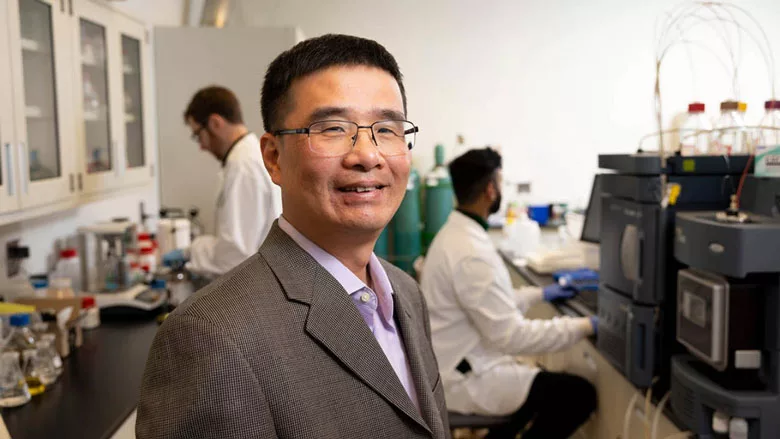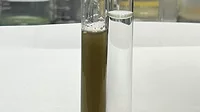UGA Scientist Takes On 'Forever Chemicals' in New Research
Environmental engineer develops new methods to break down persistent PFAS pollutants

Dr. Qingguo "Jack" Huang's team at UGA developed DE-FLUORO, a breakthrough electrochemical process that breaks down harmful forever chemicals in water.
Source: University of Georgia
In a world increasingly concerned about chemical pollution, University of Georgia professor Dr. Huang is tackling one of environmental science's most persistent challenges: the breakdown of PFAS, notorious "forever chemicals" that have infiltrated global ecosystems.
These per- and polyfluoroalkyl substances, found in everything from non-stick cookware to firefighting foam, have earned their ominous nickname through their stubborn resistance to natural degradation.
"They're carcinogenic," warned Huang, a professor in UGA's College of Agricultural and Environmental Sciences. "Eventually they end up in a landfill. After tens of years in a landfill, they slowly leach out and find their way into the landfill leachate and the environment."
The ubiquity of PFAS in consumer and industrial products—prized for their resistance to oil, water, and high temperatures—has created a silent environmental crisis. These chemicals have now permeated our water, soil, and air, accumulating in the food chain and human bodies with no natural means of breaking down.
For Huang, whose journey from undergraduate studies in China to his current position at UGA has been driven by environmental concerns, PFAS presented an irresistible scientific challenge.
"I started to think: What are the questions that I want to work on?" he recalled. "I heard about these chemicals, PFAS. Back then, outside of environmental scientists, it was not as well-known as it is now."
The complexity of tackling these persistent pollutants required specialized equipment and institutional support. UGA's commitment to acquiring necessary advanced tools for detecting PFAS at low concentrations attracted Huang to join the university in 2007. With backing from the Strategic Environmental Research and Development Program and UGA's support, Huang's research aims to devise innovative methods to degrade these seemingly indestructible compounds.
"The problem is our technologies. Traditional technologies don't remove those chemicals," Huang explained. "As a chemist, it's intriguing to me if we can devise a way to degrade them. It's a challenging question."
But Huang and his team have done more than just pose the question—they've answered it. Their electrochemical oxidation process, now marketed as DE-FLUORO, offers a sustainable solution for destroying PFAS in contaminated liquids. The technology effectively defluorinates and mineralizes both short-chain and long-chain PFAS, tackling a range of contaminated materials from fabric and carpet coatings to firefighting foam residue.
The project, which began in January 2021, has already demonstrated promising results in treating PFAS-contaminated plating wastewater. Unlike traditional treatment methods that merely transfer PFAS from one medium to another, DE-FLUORO represents an economically and environmentally sustainable approach that actually destroys these persistent chemicals.
"What makes this technology particularly exciting is its ability to break down these supposedly indestructible compounds," says Huang. "We're not just moving the problem elsewhere—we're solving it at its core."
Looking for a reprint of this article?
From high-res PDFs to custom plaques, order your copy today!






